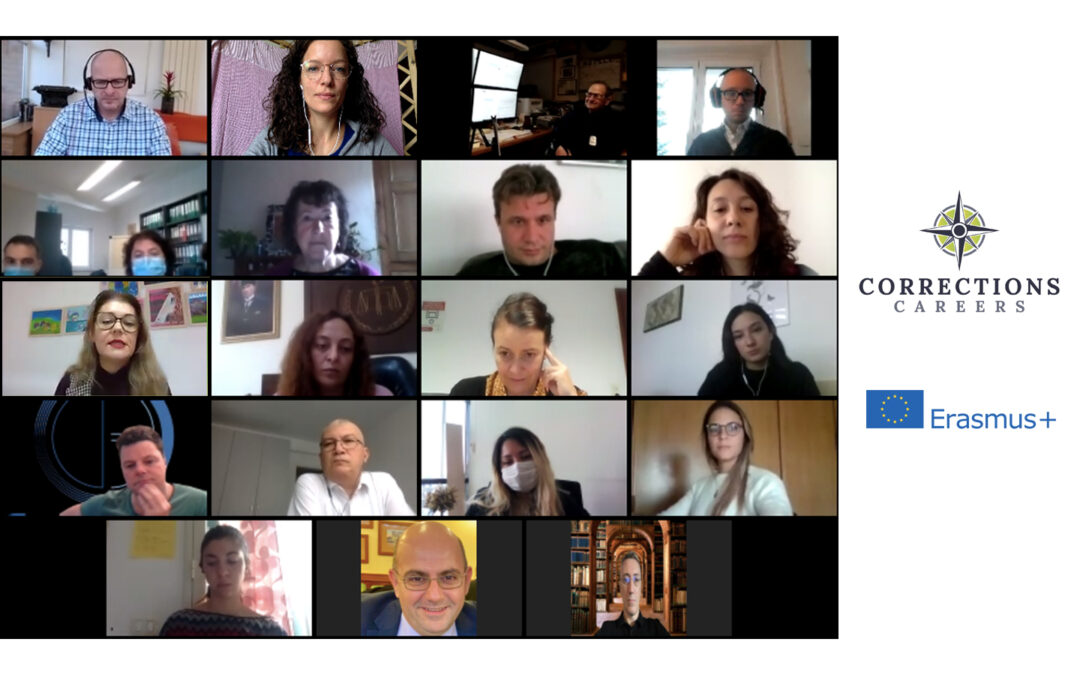The activities of CCJ4C keep going on! According to the project timeline, in October the partners should have been met in Brema to carry out the training activity organized by the German partner. The unexpected Covid pandemic forced the partners to change the plans.
The training took place on 26th and 27th October in the online environment led by Alan Blaney an external trainer who led for two days the activities in a very engaging way. The training is part of the Work Package number 2 of the project.
The main aim of this Work Package is to analyse the state of art of the working conditions of the correctional and prison officers in the different countries involved in the project (Romania, UK, Italy, Turkey, Germany, Denmark, Portugal) and to start the engagement of the local stakeholders, collecting the primary needs of this professional category, in terms of wellbeing in the workplace, the need of trainings, and the main problems they face everyday during their shifts. The Work Package 2 is the first of the 3 operative work packages of the project.
The general aims follow two streams: the first is to provide an e-learning platform with the contents developed during the project, based on the general needs of these professionals; the second stream, since it is a KA3 project, is to encourage and support a policy of reform at the European level.
The two days were divided into six work sessions:
- The first one was about establishing definitions of concepts like Prison Officer, Lifelong Learning and Career Guidance;
- The second one was about identifying priorities: starting from the results of the questionnaire that each partner delivered to the local stakeholders, mainly the prison officers, they had to identify the most important issues the prison sector is facing;
- The third and the fourth sections focused on the way of engagement of subjects that in each country could lead to an improvement following the priorities and the needs pointed out in the previous sessions;
- The fifth session was to identify the outcomes, using specific evidences that demonstrates the needs to be satisfied;
- The last session was about the development of a National Action Plan, through the SMART methodology (Specific, Measurable, Achievable, Relevant, Time-bound).
The evaluation of the training showed that it was very useful and stimulating for each one of the partners. CEIPES staff participated with a very enthusiastic mood, we are ready to organize next activities with the local stakeholders.
On this occasion we invited Matilde Solla to participate as one of the members of the UIL Italian local trade union for the prison officers. She contributed significantly to the international debate, and we are sure this collaboration will continue for the following activities of the project.


